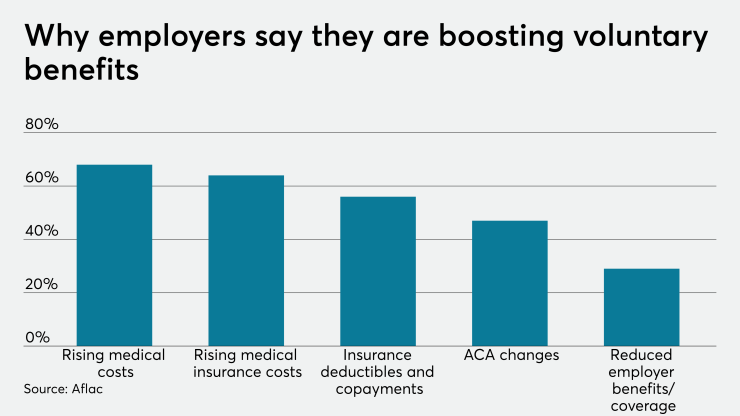As captains of industry extol the importance of investing in human capital and employee well-being, venture capital continues to pour into startups and established players helping make the workplace more responsive to the needs of working Americans.
Nearly 200 chief executives belonging to the Business Roundtable recently committed to becoming more socially responsible and attuned to their workforces. As a group, they pledged to provide more meaningful benefits, fair compensation, training and education.
With U.S. employers waging a war for talent while also seeking to contain rising health benefit costs, Greylock general partner Sarah Guo believes there’s “massive opportunity for technology to give people better access to experiences and data-driven personalization.”
She’s pleased to see business leaders holding themselves accountable for how they treat their employees and establishing “a modern standard for corporate responsibility.” At the same time, Guo sees a major role for benefit brokers and advisers to partner with the C-Suite to help access an explosion of innovation services that can make life easier for employees.
Greylock has invested in companies that focus on strategic priorities for employers. They include healthcare quality assessor Grand Rounds, behavioral health champion Lyra Health and parenting benefits provider Cleo. Another noteworthy startup in this space is Fond, an employee recognition and reward platform. Customers include digital-age darlings as well as traditional employers.
Making life easier
“We’re going to see more companies on the [Business Roundtable] list take advantage of new employee benefit solutions to ensure employees are set up for success at work,” predicts Lindsay Jurist-Rosner, founder and CEO of Wellthy, whose concierge service helps employees coordinate care for a chronically ill, aging, or disabled loved one.
Employer customers of Wellthy, founded in 2014, include Salesforce, News Corp, Hearst Corp. and others that she says place people above profits, as well as create a fair and supportive work environment for all types of employees.
Demographic shifts are one driving force behind this changing mindset, with Jurist-Rosner noting the entrance of more women in the workforce and senior-level roles alongside a massive aging population. The result, she says, is working parents that are part of the so-called sandwich generation are being increasingly “squeezed by family care issues” involving both children and elderly parents who are in declining health. Indeed, she notes that as many as 90% of long-term care is handled by families.
There’s such a thirst for access to family resources in the workplace that Hearst employees who are leaving the media company, retiring or getting laid off have negotiated maintaining access to Wellthy’s services as part of their separation package. “We’ve been able to really make a huge impact on people's lives,” Jurist-Rosner notes.
Guo says each of the workplace vendors she has invested in offer a clear business value to employers and employees alike. In the case of Grand Rounds, for example, the mission is to help covered lives navigate complex medical care, as well as use telemedicine and care management teams to connect patients with the highest-quality doctors and second opinions. The upshot is that data analytics, technology advances and clinical expertise all serve to improve health outcomes and lower costs.
With Lyra Health’s tech platform, a lifecycle and digitally enabled approach seeks to boost historically poor utilization of employee assistance plans. Greylock identified behavioral health as one of the top cost drivers or areas of concern for employers in terms of its impact on culture and productivity. The aim is to improve treatment of anxiety, depression and addiction.
Cleo’s appeal to Greylock’s workplace vendor portfolio is that its family friendly services can have a meaningful impact on the recruitment and retention of working parents. The use of technology enables better access to higher quality and better organized care through a global network of experts certified in diverse topics ranging from lactation and prenatal nutrition to sleep training and career coaching.
Jurist-Rosner believes industry producers will “continue to play a pivotal role in helping their clients think through the specific needs of the various employee populations that they're working with.” She already has seen a significant shift to support employees in more thoughtful, holistic and contemporary ways among both large national advisory firms and smaller brokerages.
The message appears to be resonating from Wall Street to Main Street. Amruta Moktali, chief product officer for Cleo, believes employee well-being is a top priority for CEOs in virtually every industry. “Over the next few years, we can expect to see the benefits packages at many Fortune 500 companies evolve to support employees in both their work life and home life,” she says.
Her firm has partnered with hundreds of companies that include Uber, LinkedIn and eBay. Among the startup’s investors: Jeff Immelt, former CEO of General Electric who’s now a venture partner at New Enterprise Associates.






